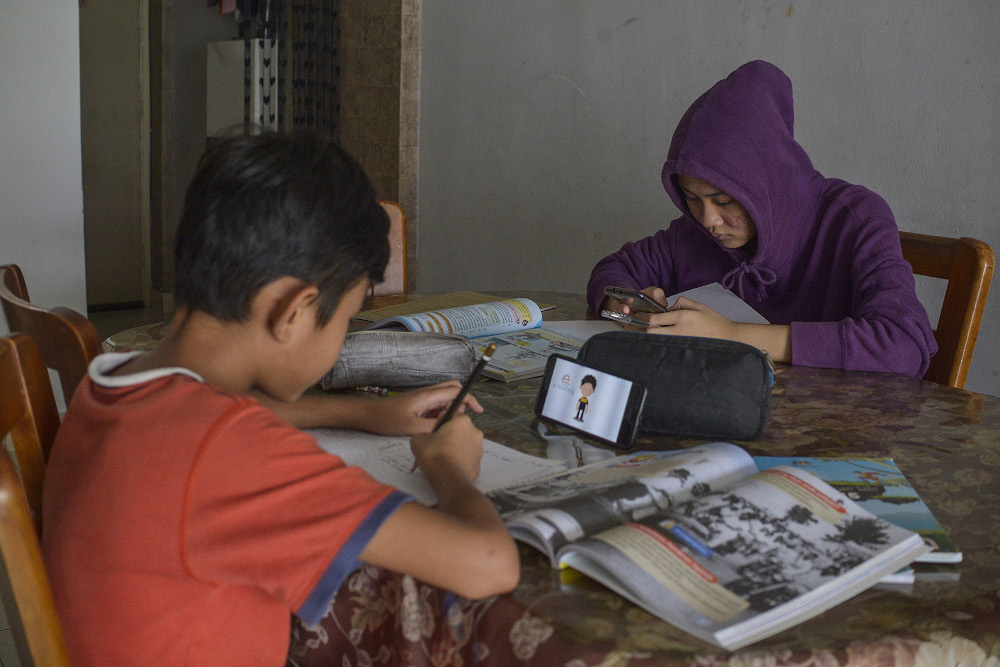Subscribe to our Telegram channel for the latest updates on news you need to know.
KUALA LUMPUR, March 9 — In less than a month after the launch of the Education TV channel, DidikTV KPM, various reactions have been received from the community about the Ministry of Education (MoE)’s efforts to increase education access nationwide.
As soon as it came on air, DidikTV KPM has been bombarded with much criticism thrown at the teacher featured in the programme, such that some actually went to great lengths to question the credibility of the MoE in maintaining the quality of the content.
As if that was not enough, there were those who questioned DidikTV KPM’s approach to the concept of edutainment, which seemed to stray further from the original purpose of the implementation of Education TV.
Hence, when Senior Education Minister Datuk Dr Radzi Jidin recently said that DidikTV KPM would continue even though schools will be fully reopened in April, the quality and content aspects must be given priority by the ministry to ensure that the channel remains relevant.
The content should be in line with the latest technology, and should also be monitored by a committee comprising those from outside and within the MoE to evaluate and provide views on improvements from time to time.
As DidikTV KPM content is controlled by the MoE and the presentation is made by expert teachers, there should be no quality issues in the content, said Associate Prof Dr Azlin Norhaini Mansor, chairman of the Centre for Leadership and Education Policy, Faculty of Education, Universiti Kebangsaan Malaysia (UKM).
“I have watched several programmes on the channel and I found some to be very good, some were okay and some were less interesting. For me, this is normal, as the channel is still new and definitely faces many weaknesses and challenges,” she told Bernama recently.
“Of course, many people want to know what MoE’s goals are for DidikTV KPM, especially for the next five to 10 years. Will it be a programme that will disappear once the Covid-19 pandemic eases?” she said.
She also said that if the channel is managed properly, it would be a medium that could narrow the achievement gap among students.
DidikTV KPM can be an alternative for students who are unable to attend school due to illness, lack of access or living in rural areas, those who are unable to attend school due to poverty or dropouts or repeats that allow them to study at home and take private exams, she said.
“There are many benefits of the channel if implemented seriously because this can complement the role of parents in helping children understand what they are learning as well as helping teachers to learn from more expert teachers, and encourage students to manage their own learning by choosing which series to watch and to repeat episodes that they do not understand,” she said.
Sharing the sentiment was Prof Dr Ahmad Fauzi Mohd Ayub, lecturer at the Foundations of Education Department, Faculty of Educational Studies, Universiti Putra Malaysia (UPM) who said that the content of DidikTV KPM should be improved from time to time in order to give a greater impact in strengthening the educational process.
He said there should be integration between students and teachers, with content and technology as well as good script writing, so that the teaching process can be implemented perfectly.
“It is very important to choose a teacher or personality who can convey their knowledge effectively, because not only will it make it easier for students to understand the subject but also will make the DidikTV KPM programmes good learning support material for students in the future.
“Therefore, there must be an interesting presentation of knowledge so that students will be easily attracted to the knowledge imparted… when it is interesting they will continue to watch and DidikTV KPM will complement their learning when they are less proficient in one subject,” he said.
A similar view was also expressed by academician Dr Wan Zah Wan Ali who described DidikTV KPM as not just educating but should also entertain, and meet the needs of its audience if it wants to remain relevant.
Wan Zah said DidikTV KPM should also be in line with the current needs of students, and should use the best approach to attract students in the city as well as in the interior.
“I remember Education TV around the 80s, where at that time where teachers tried to use it in teaching. When the schedule was prepared, the teacher said that the broadcast was not on time and a video recorder was provided, but other problems arose, such that the Education TV programmes at that time were not satisfactory,” Wan Zah said.
However, as it has its own channel, Wan Zah was confident that the channel will be able to fulfill the wishes of educators where students are taught beyond books and syllabus.
DidikTV KPM was launched on Feb 17 by Prime Minister Tan Sri Muhyiddin Yassin, to meet the needs of students from low-income families and those living in rural and remote areas facing lack of internet access and devices, particularly after the MoE implemented the home-based teaching and learning (PdPR) sessions during the movement control order (MCO) 1.0 and 2.0. — Bernama


